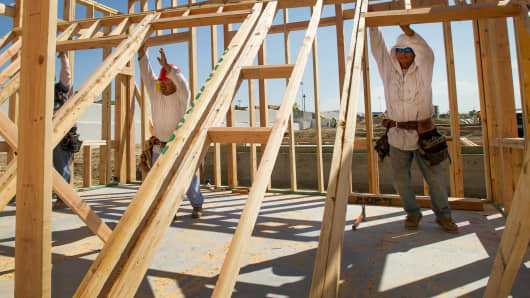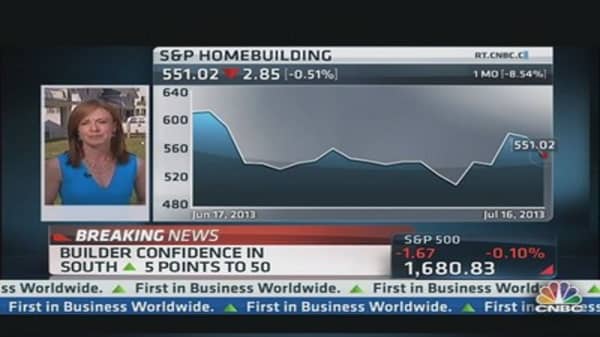Home prices are up over 12 percent nationally from a year ago, and limited supplies of homes for sale continue to push that number higher. Demand is coming back, home builder sentiment is at a seven-year high and real estate agents are reporting bidding wars. None of this means housing is heading back to the bubble, according to economists at CoreLogic.
(Read more: Home builder confidence soars despite rising rates)
"The fundamentals are there right now, and the market is responding," said Mark Fleming, chief economist at CoreLogic.
Even in the fastest growing markets, where prices are up around 20 percent from a year ago, Fleming pointed to still near-record affordability. For housing price affordability to return to the average level that we saw in the years between 2000 and 2004, he said, either home prices would have to rise an additional 47 percent or interest rates rise to 6.75 percent. Only Washington, D.C., and Hawaii are "technically unaffordable," according to CoreLogic.





